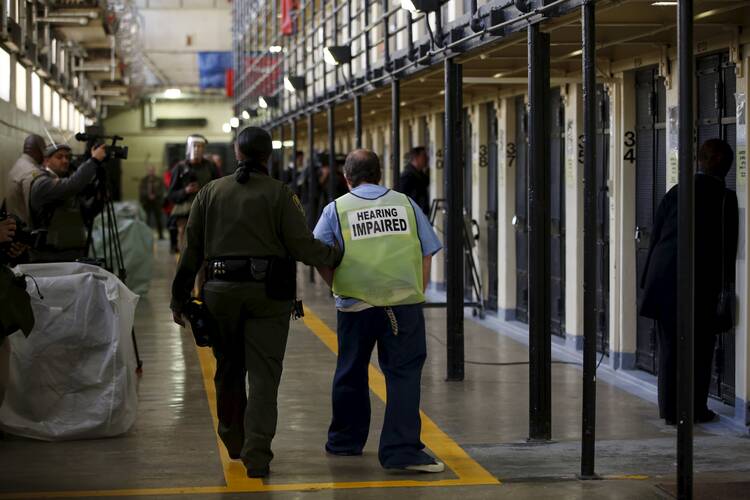Even death penalty supporters agree that Florida’s attitude toward capital punishment is a little too cavalier for comfort. The chronic and gruesome malfunctions of its electric chair—including flames shooting from prisoners’ heads—led Bob Butterworth, the attorney general in 1997, to quip that “Old Sparky’s” problems were a splendid murder deterrent.
Three years later, amid national outrage, the U.S. Supreme Court pressured Florida into ditching the chair and adopting lethal injection.
But the Supremes have recently had to weigh in again on Florida’s death-penalty doings. This time the issue is not how the state carries out executions but how it decides who faces them.
Few disagree that Florida has been operating unconstitutionally when it comes to imposing the death penalty. The Supreme Court justices themselves certainly do not. In a nearly unanimous 8-to-1 ruling in January, they struck down the state’s capital sentencing system, calling it a violation of the Sixth Amendment—or at least a violation of how the court interpreted the Sixth Amendment 14 years ago.
Back in that 2002 case, Ring v. Arizona, the court said the Sixth Amendment requires that juries—not judges—apply the death penalty. But Florida disregarded the ruling.
It adhered instead to a practice in which juries recommend to judges whether there are “aggravating circumstances” in a murder case that warrant capital punishment. The judge then makes the final call.
This year, writing for the majority in Hurst v. Florida, Justice Sonia Sotomayor said a “jury’s mere recommendation is not enough” to “impose a sentence of death.”
Florida’s Catholic bishops welcomed the court intervention. A conference statement notes that while the bishops believe “that life imprisonment without parole…renders the death penalty unnecessary,” they have also long identified the need to address the state’s “flawed death sentencing scheme.”
At first glance, it would seem that January’s ruling would not be a huge legal disruption for Florida. The late Justice Antonin Scalia, the Supreme Court’s sole dissenter, pointed out that if a jury recommends the death penalty, it follows that it would also impose that sentence if it had the final say. So all the state should need to do is adjust its law and give juries that power.
As if to make precisely that point, the Supreme Court issued its judgment in Hurst v. Florida on the same day the Florida state legislature started its 2016 session. But in Florida, this is turning out to be more complicated than simply tweaking flawed legislation.
First, there is the question of retroactivity. Ring v. Arizona, after all, has long been the law of the land, and many of the 389 prisoners now on Florida’s death row were sentenced when the state was essentially a constitutional scofflaw. Should their cases now be reviewed, if not thrown out altogether?
On Feb. 2, the Florida Supreme Court signaled it is wrestling with that quandary when it issued an indefinite stay of execution for Cary Michael Lambrix, a prisoner on death row. It is also hearing the cases of other death-row inmates who insist their sentences should be scuttled as a result of Hurst.
The Florida legislature also has to decide whether to mandate that jury members impose death sentences unanimously rather than by majority vote, as current state law allows. Should it stick with the majority procedure, it risks having the U.S. Supreme Court strike that down as a Sixth Amendment breach as well.
Whatever the legislature does, death-penalty sentencing has been all but suspended in Florida. And since Florida is among the states that employ capital punishment most—it has the fourth highest number of executions in the United State in the past 40 years—legal scholars believe that legal limbo could have the psychological effect of further dampening death-penalty enthusiasm nationally. Last year, the number of people condemned to death in the United States was the lowest in almost half a century.
“It clearly contributes to the sense that the death penalty is dying in this country,” says Stephen Harper, a law professor at Florida International University. “It will change the perspective.”
That perspective has changed even in Florida. A new F.I.U. law school survey finds only a third of Floridians now favor the death penalty over life imprisonment.








